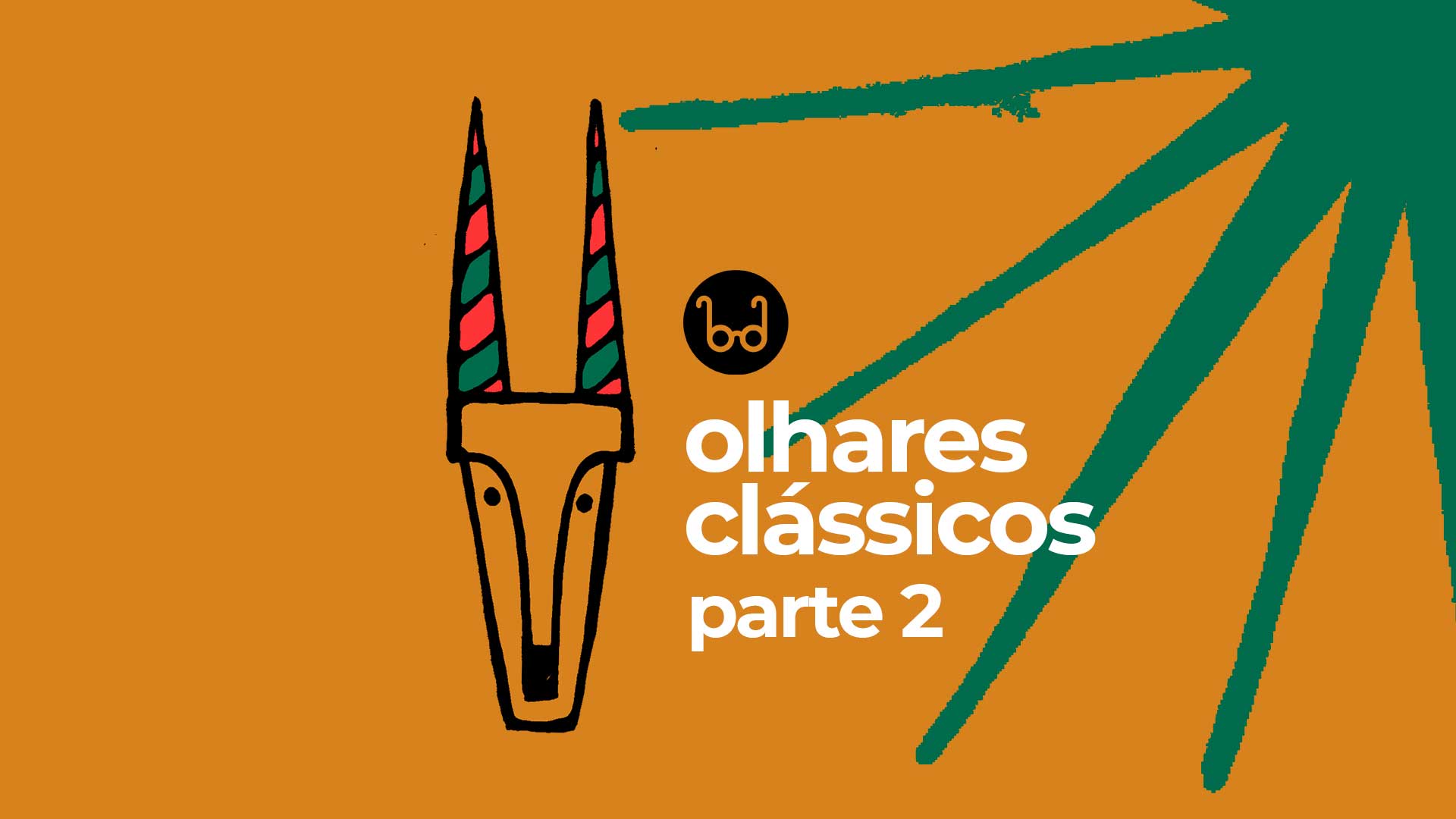
-
29 de April de 2019
Classics // Part 2
After having previously announced part of this year ‘s Classics selection, the eighth edition of the Olhar de Cinema – Curitiba International Film Festival now announces the second half of the program, which contains homages and commemorations.
A 50th anniversary belongs to Funeral Parade of Roses (1969), directed by Toshio Matsumoto (1932-2017), a dazzling cross-genre Japanese masterwork whose recent restoration by Arbelos Films will receive its Brazilian premiere at Olhar. Matsumoto, who is today considered to be a key figure of Japanese experimental film, cast real-life transvestites from Tokyo’s bar and nightclub scene within a modern-day retelling of Oedipus Rex. His hyper-edited first feature contains a bold mixture of fiction and documentary elements, including interviews in which some of the self-called “gay boys” speak about their understanding of role-playing, scenes which help turn Funeral Parade into one of the great queer films.

In recent times, the film series “L.A. Rebellion” has played in several Brazilian cities, bringing with it treasures made by Black independent filmmakers from the United States and Africa who worked in Los Angeles between the 1960s and 1990s. To pay tribute to the enduring power of these works, Olhar will present one of the movement’s greatest films, Daughters of the Dust (1991), which was the first feature directed by its most vital female filmmaker, Julie Dash (1952-present) and which has been recently restored by Park Circus. The immensely pleasurable and inventive film combines a variety of musical, rhythmic, and narrative forms to show the mostly female fin de siècle residents of an island off the coast of the Southern United States on the eve of a migration for the mainland as they strive to reconcile their West African roots with life in a much newer world.
Olhar also renews its commitment to African cinema, following the festival’s retrospective last year of films by Djibril Diop Mambéty. This year, the festival pays tribute to another great filmmaker from the continent – the Mauritanian master Med Hondo (1936-2019), who passed away in March, leaving behind a small but indelible and compassionate filmography filled with righteous anger over the impact of colonialism upon his people’s psyche. Hondo’s docufictional debut feature, Soleil Ô (1970) – restored by the Cineteca di Bologna as part of the recently founded African Film Heritage Project – accompanies an African migrant worker in France who fights to maintain his strength in the midst of nightmarish visions and daily indignities. Hondo’s frequently surreal and collage-like film won the Golden Leopard at Locarno in 1970 and still holds overwhelming power with its calls for viewers to free their bodies and minds from slavery’s many different forms.

The festival additionally honors an iconic figure of European narrative cinema with a screening of his fifth and perhaps most influential feature, which was also restored by the Cineteca di Bologna, in collaboration with Minerva Pictures. Bernardo Bertolucci (1941-2018), who passed away last November, created one of the most beautifully photographed and designed films ever made with The Conformist (1970), a haunting studio-funded period film that follows the path taken between the two world wars by a self-punishing intellectual (played by an extraordinary Jean-Louis Trintignant) who tries to wipe out his upbringing by allying himself with and conforming to the demands of Mussolini’s secret police. Bertolucci was a consummate big-screen auteur who shook up arthouse audiences, film after film, with his characters’ disturbing behaviors and actions, which frequently took place within moments from the recent past that the director reimagined to comment on political tensions and divisions in Italy’s modern times. The longtime Marxist thinker always used the maximum of his budgets to both sweeping and disquieting effect – in The Conformist’s case, to lay out side by side Fascism’s ageless horror and appeal.

Another Olhar honoree this year is a lesser-known author who passed away on the opening day of the festival’s 2018 edition. Brazilian audiences have had too little exposure to the work of Russo-Ukrainian director Kira Muratova (1934-2018), whose glimmering Getting to Know the Big Wide World (1978) will screen in a restored DCP provided by the National Oleksandr Dovzhenko Film Center. This lyrical and eccentric work depicts a love triangle between three migrants while embracing the colorful rural landscape that surrounds them. There has never been another great filmmaker whose work was simultaneously as vulnerable and as provocative, as tender and as confrontational, and as intimately epic as are the films of Muratova, a liberating artist always eager to surprise.
Finally, Olhar will pay tribute to one of the true giants of cinema, who passed away last month: Agnès Varda (1928-2019), a sharp and charming maestra born in Belgium, raised in France, whose final film, Varda por Agnès (2019), will soon be released in Brazilian theaters. The festival will screen a restored digital copy from mK2 Films of one of Varda’s best-known films, Vagabond (1985), a piercing and sorrowful portrait of a vagrant young woman (played by a startling Sandrine Bonnaire) whose restless search for shelter and sustenance in the French countryside is portrayed in flashbacks following her death. Throughout Varda’s long and prolific career, the director mixed documentary and fiction for the sake of conveying greater emotional truths about modern human existence. She paid special care and attention to people living on society’s margins, and Vagabond contains the emblematic warmth of her gaze.

The five previously announced five titles in the Classics section can be consulted, alongside other news about this year’s edition of Olhar de Cinema, at the website olhardecinema.com.br.






